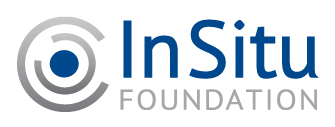In Situ Foundation, a 501(c)3, has been dedicated to scientifically training dogs to detect early stage cancer in humans for over 12 years. We are the leading experts in the field of training cancer detection dogs, and were among the first to participate in published research, setting the bar for future studies on the subject.
Dina Zaphiris, Founder and CEO of In Situ Foundation, has been training dogs for over 23 years. She has specialized in Medical Scent detection, Missing Persons detection, and Bomb and Narcotics detection dogs. Dina Zaphiris is a pioneer and leader in the field of canine bio-detection, and has trained over 50 dogs to detect cancer for federally funded, as well as privately funded studies. Her work has generated interest from the top universities in the world, including University of California, Davis, and Duke University.
In Situ utilizes teams of dogs for each clinical trial. It’s important to have a team of dogs sniffing each sample, not just one dog. We have trained over 50 dogs in 12 years to detect cancer, including a group of e.coli detection dogs for UTI infections in disabled people. In Situ has it’s own team of three dogs, and dogs for subsequent studies have been volunteered from the public to participate in different clinical trials. All of our dogs have loving pet homes, but they go to work during the day, just like a police dog would. Dogs love their work, and our dogs would rather work than do anything else.
They are all trained with positive reinforcement, love, praise and reward, so they associate “work” with “play”. In Situ Foundation’s mission is to use shelter/rescue dogs whenever possible. We adopt dogs and give them loving homes, so what could have been a dog on death row, is now being trained to save human lives. Two of In Situ’s German Shepherds were rescued from death row, and almost all of the dogs in the program have been rescued. All dogs are “super sniffers”, so we do not believe in breeding them, or creating a “super sniffer” breed.
Duke University
In Situ Foundation is collaborating with Duke University on a breast cancer study. We are training a team of 3 dogs to distinguish cancer from benign breast tumors in plasma. Our second phase with Duke focuses on training dogs to detect breast cancer from benign tumors in breath samples.
UC Davis
In Situ Foundation has a future collaboration planned with University of California, Davis, beginning the summer of 2015, a team of dogs will be trained to detect upper thoracic cancer in human saliva / sputum samples.
With UC Davis as a partner, we’re proposing a Center of Canine Excellence, which will open at UC Davis, and will be dedicated to ongoing research, protocol development, and training of cancer detection dogs and their handlers. The center will also offer cancer screenings to the public. The Canine Center of Excellence will also serve as an exploration of other possibilities of the dog’s nose in medicine, as well as in agriculture (eg. training dogs to detect a certain bug or fungus that could ruin a crop). We will work alongside the best vet school in the country, to help decipher the code to what VOCs (Volatile Organic Compounds) actually make up cancer.
Exploring cancer through odor, or VOCs (Volatile Organic Compounds), is a relatively new idea in science, but holds tremendous possibilities. Published studies abound from all over the world, proving accuracy levels that are beyond machines’ abilities. Right now, doctors use only 3 primary senses to diagnose a patient: hearing, sight, and touch. The dog will add a fourth sense, olfaction, to help diagnose cancer. Why use 3 senses when we could be using 4? In no way do we suggest replacing medical equipment or diagnosis; dogs are simply adding to the equation.
With their exquisite sense of smell, we can help assist doctors when there is an unclear scan, or when medical tests are not giving us a clear answer. Dogs can provide a detection method for a recurrence of cancer among people in remission, giving patients the peace of mind they deserve. Dogs can provide a low cost screening of the general public for early stage cancer. Early detection IS a cure. “We stand on the precipice of a major paradigm shift adding olfaction to our diagnostic approach.” (Dr. Hilary Brodie, UC Davis.)
